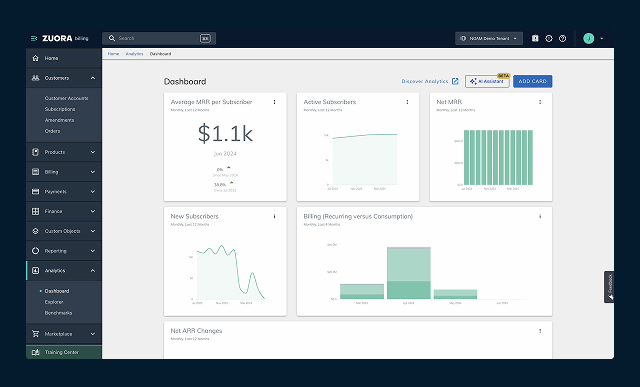An activist employee is an engaged employee.
The past few years have seen a sharp rise in employee-driven activism. From public declarations to staff walk outs, employees have found creative (and often very public) ways to demand their companies take a stand on the issues they care about. We have seen employee protests around in-house issues like sexual harassment, pay equality and questionable commercial relationships and around wider societal, issues like controversial government policies and inaction on climate change. These protests make headlines, but they also reflect a wider trend of employees choosing to work for companies that reflect and support their own values.
According to a report from LinkedIn, 71 percent of professionals said they would take a pay cut for a company with a mission they believed in; and 39 percent would quit a company if the employer asked them to do something they believed to be unethical.
Business leaders have taken note and employee activism was credited as one of the factors in convincing company leaders to commit publicly to making their businesses accountable for more than just shareholder value. On August 19th, 181 CEOs from global Fortune 500 companies signed a statement produced by The Business Roundtable, which extended the purpose of a company beyond shareholder value to a commitment to employees, suppliers and communities.
In achieving this purpose, companies will only be considered as ‘good’ as the outputs they measure. Simply paying lip service to cosmetic initiatives, which has too often been the approach of many businesses, is unlikely to ensure long-lasting employee engagement and advocacy. In fact, the rapid growth of employee activation suggests a widening gap between employee expectations and business execution. In respect to the ‘climate breakdown’ agenda a recent study by Carbon Credentials consultancy found that 57 percent of employees do not trust their employer’s claims in this area. This begs the questions: Are we reaching a tipping point of employee-based activism, how well are businesses prepared to meet this challenge, and what innovations are needed to measure and show results?
Understanding and empowering employees to act
A holistic approach to understanding, managing and measuring the employee experience is a good place to start. Experience management tools like engagement and pulse surveys, or always-on feedback, can give employees a line in to their employers. The feedback gives executives insight to the hearts and minds of employees which, in turn, helps them understand the daily implications to their business. The other opportunity inherent in having activist employees is to get them engaged in issues at an individual level as well as enlisting them to help find solutions to the genuine business challenges that limit progress. At SAP, we use a range of new tools to help harness employee’s appetite for positive change. However, programmes like this can only scale as effectively as an organisation is able to measure an individual’s impact. For example, there is little point identifying that an employee can make a 90 percent carbon saving by taking the train from London to Paris rather than flying if that information isn’t integrated into the booking systems and overseen by managers with an incentive to act.
Companies need to innovate in order to use the data stored within core ERP systems in a meaningful way. They also need to embed social commitments into business objectives to help provide accountability and transparency with external stakeholders and trust amongst employees.
We have found that a one percent increase in our BHCI has led to a €100m impact on our bottomline
Preparing businesses to meet the challenges
Employee activists don’t just want companies to voice support for the causes they believe in. They want employers to commit money and resources to developing solutions that contribute to the greater good. Modern ERP provides much of the tooling to enable this, but has traditionally lacked the innovation across the supply chain to provide real understanding and transparency of what is often a complex system. However, this is starting to change.
Digital procurement technology platforms now make it easier than ever for businesses to connect and work with social enterprises. For example, procurement platform SAP Ariba is now integrated with certification schemes from NGOs like OceanCycle, a social enterprise focused on assisting businesses in making large volumes of products out of ocean plastic.
This sharing of data and information helps business to collaborate on sustainability models which are mutually beneficial and help the greater good.
The other opportunity inherent in having activist employees is to get them engaged in issues at an individual level as well as enlisting them to help find solutions to the genuine business challenges that limit progress
Measuring and reporting results
By expanding their commitment beyond shareholders to employees, partners and communities, businesses will also be expanding their accountability to include new metrics and to appease more stakeholders. NGOs like Greenpeace, WRAP and the Ellen MacArthur Foundation will monitor businesses in much the same way as traditional regulatory bodies and investors.
For some organisations this will be seen as a significant burden, but in fact, companies that already have a robust ERP system governing their business should already have the tools in place to measure and report this data.
We have been working hard over the last 10 years to deliver a clear sustainable business agenda supported by a fully integrated annual report, covering not only financial performance, but also environmental and social metrics. The results have confirmed our belief that doing good is good business. We have found that a one percent increase in our Business Health Culture Index (BHCI) has led to a €100m impact on our bottom line.
This isn’t the first time in history that employee activism has driven corporate and social change. What is new, though, is the ease with which employees can communicate with like-minded individuals and carry that conversation into the public domain. The good news is that an activist employee is an engaged employee. They believe in the ability of businesses to solve big problems. But until companies can harness their internal resources to drive change, employees will continue to compel them to do so; or leave and work for another company that will.
Stephen Jamieson is head of sustainable business innovation, Northern Europe, SAP.




